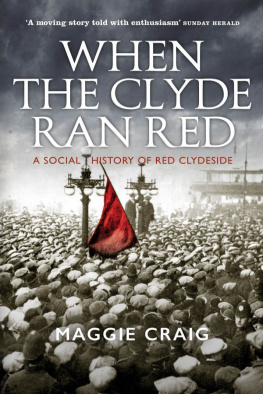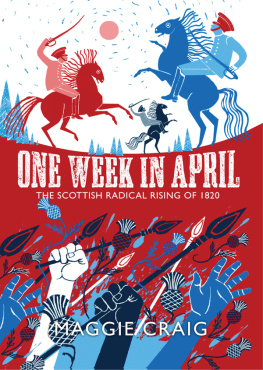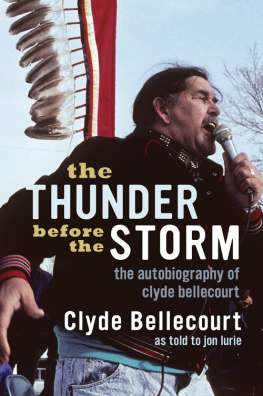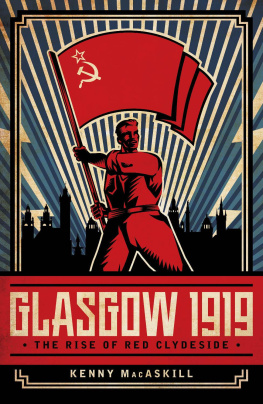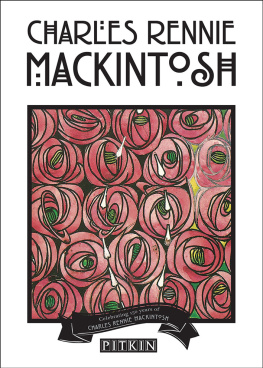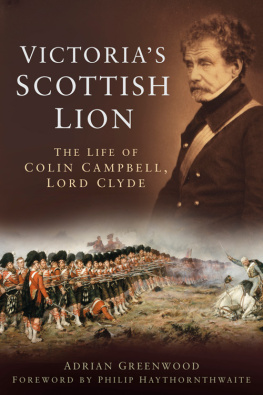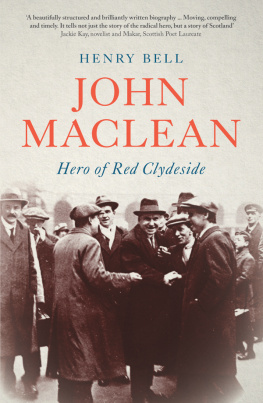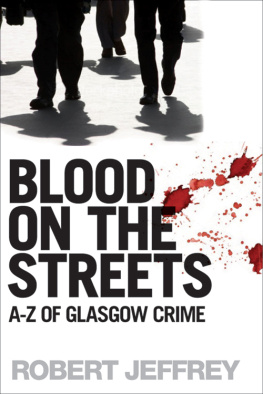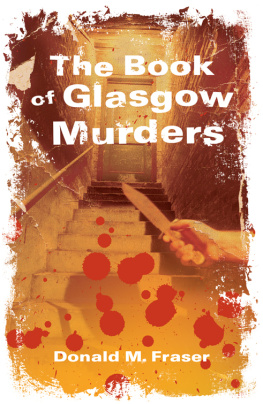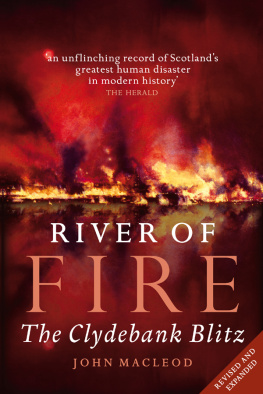Maggie Craig is the acclaimed writer of the ground-breaking Damn Rebel Bitches: The Women of the 45 and its companion volume Bare-Arsed Banditti: The Men of the 45. She is also the author of six family saga novels set in her native Glasgow and Clydebank. She is a popular speaker in libraries and book festivals and has served two terms as a committee member of the Society of Authors in Scotland.
Also by Maggie Craig
Non-fiction
Damn Rebel Bitches: The Women of the 45
Bare-Arsed Banditti: The Men of the 45
Footsteps on the Stairs: Tales from Duff House
Henrietta Tayler: Scottish Jacobite Historian
and First World War Nurse
Historical novels
One Sweet Moment
Gathering Storm
Dance to the Storm
Glasgow and Clydebank novels
The River Flows On
When the Lights Come on Again
The Stationmasters Daughter
The Bird Flies High
A Star to Steer By
The Dancing Days
www.maggiecraig.co.uk

This edition first published in 2018 by
Birlinn Limited
West Newington House
10 Newington Road
Edinburgh
EH9 1QS
Copyright Maggie Craig 2011, 2018
First published in 2011 by Mainstream Publishing, Edinburgh
ISBN: 978 085790 996 1
The right of Maggie Craig to be identified as the author of this work has been asserted by her in accordance with the Copyright, Designs and Patents Act 1988.
All rights reserved. No part of this publication may be reproduced in any form or by any means without permission from the publisher.
British Library Cataloguing in Publication Data A catalogue record for this book is available from the British Library.
Designed and typeset by Initial Typesetting Services, Edinburgh Printed and bound by MBM Print SCS Ltd, Glasgow
For my father,
Alexander Dewar Craig,
who first sang me the songs,
and first told me the tales of Red Clydeside;
and for the other exceptional human being who is his beautiful grandchild and our brilliant younger child.
Contents
List of Illustrations
Acknowledgements
I should like to express my sincere thanks to the following people and institutions for the help they gave me with my research and in supplying illustrations for this book: Audrey Canning, librarian, Gallacher Memorial Library, with special thanks for pointing me in the direction of Helen Crawfurd and Margaret Irwin; Carole McCallum, archivist, Glasgow Caledonian University; all those who contributed to Glasgow Caledonian Universitys Red Clydeside website; the late Mr James Wotherspoon of Clydebank, still sharp as a tack at the age of 105; Pat Malcolm and her colleagues at Local Studies, Clydebank Library; Jo Sherington of West Dunbartonshire Libraries and Cultural Services; the librarians and all other staff at the Mitchell Library, Glasgow, with particular thanks to Nerys Tunnicliffe, Patricia Grant, and Martin ONeill; Claire McKendrick, Special Collections, University of Glasgow Library; The Willow Tea Rooms, Sauchiehall Street, Glasgow; James Higgins and Christine Miller of Bishopbriggs Library; David Smith of East Dunbartonshire Leisure and Culture Trust; Marie Henderson of Glasgow Digital Library at the University of Strathclyde; Shona Gonnella and Anne Wade at the Scottish Screen Archive, National Library of Scotland; Kevin Turner of the Herald and Evening Times photo library; Neil Fraser of SCRAN; the Marx Memorial Library for permission to quote from Helen Crawfurds unpublished memoirs; and, for permission to quote from his poem on the launch of the Queen Mary, The Society of Authors as the Literary Representative of the Estate of John Masefield.
I should also like to express my appreciation of all the Bankies over the years who have shared with me their memories of the Clydebank Blitz, some of whom have now passed on. They have included Margaret Hamilton, Grace Peace, Grace Howie, Joen McFarlane, Jean Morrison, Andrew Hamilton and the late Maisie Nicoll, ne Swan, with special thanks to Maisie for the pianos. My late parents, Alexander Dewar Craig and Molly Craig (ne Walker), also told me of their experiences in Clydebank and Glasgow on those two terrifying nights in March 1941. For the first, hardback, edition of this book, thanks are due also to Kate McLelland for another great cover, and to everyone at Mainstream, most particularly Ailsa Bathgate and Eliza Wright.
For this new paperback edition, Id like to thank Helen Bleck for her meticulous and sensitive copyediting. My thanks also go to Andrew Simmons, Tom Johnstone and all at Birlinn, and to James Hutcheson for the cover design.
Id also like to thank the wonderful Will, Pim, Alexander and Ria for all their love and support, with special thanks to Ria for coming up with le mot juste in the nick of time.
Preface
This book is about Red Clydeside, those heady decades at the beginning of the twentieth century when passionate people and passionate politics swept like a whirlwind through Glasgow, Clydebank and the west of Scotland. Its also about the world in which those people lived. My aim has been to paint a vivid picture, telling the story by placing the people and their politics within the wider context of the place and the times.
These were years of great wealth and appalling poverty, when Glasgow was home to some of the most magnificent public buildings in Europe and some of its worst slums. This Glasgow welcomed the world to spectacular open-air exhibitions, chatted with its friends in elegant art nouveau tea rooms, fell in love with the movies in glittering art deco picture palaces and tangoed and foxtrotted the night away in the palais-de-danse which dotted the city.
This Glasgow also lost a thousand young adults each year to tuberculosis (TB). Overcrowded and insanitary tenements where a bed to yourself was an unheard-of luxury provided the perfect breeding ground for this terrible illness. Other spectres stalked the poor. Thousands of Glasgows children were born to die. Thousands of women had a child every year until it killed them, dying worn-out before they were even 40 years old.
Outside the home, men and women worked exhaustingly long hours for low pay in filthy conditions where health and safety had never even been thought of. Horrific workplace accidents were commonplace. Find yourself incapacitated by such an injury and the most you could hope for to help pay the rent and feed your family was a whip-round organised by your workmates.
National insurance was introduced only in 1911 and did not extend to workers families or the unemployed. There was no social security or National Health Service. Other than the absolute last resort and shame of going on the parish, only the kindness of others caught you when you fell. Small wonder that one Red Clydesider described this Glasgow as Earths nearest suburb to hell.
Yet poverty, an unequal struggle and lack of opportunity do not always breed despair. Sometimes they breed a special kind of man or woman, one who uses their anger and apparent powerlessness to fuel a fight for justice and fair treatment for everyone. The Red Clydesiders belonged to this special breed. So did my father.
Growing up in Old Monkland in Coatbridge during the Depression of the 1930s, he and his family knew real hardship. Yet they knew how to laugh too, as they knew how to tell stories. A railwayman who worked his way up from shunter to stationmaster, my father travelled all over Scotland in his work and he knew the story behind every stone. A Buchan quine who loved her adopted Glasgow, my mother too had her stories to tell, as did our battalion of aunts and uncles. Two in particular whose experiences are included in this book are Alex McCulloch and his wife Elizabeth (ne Craig), our familys beloved Aunt Elizabeth and Uncle Alex.
Next page
